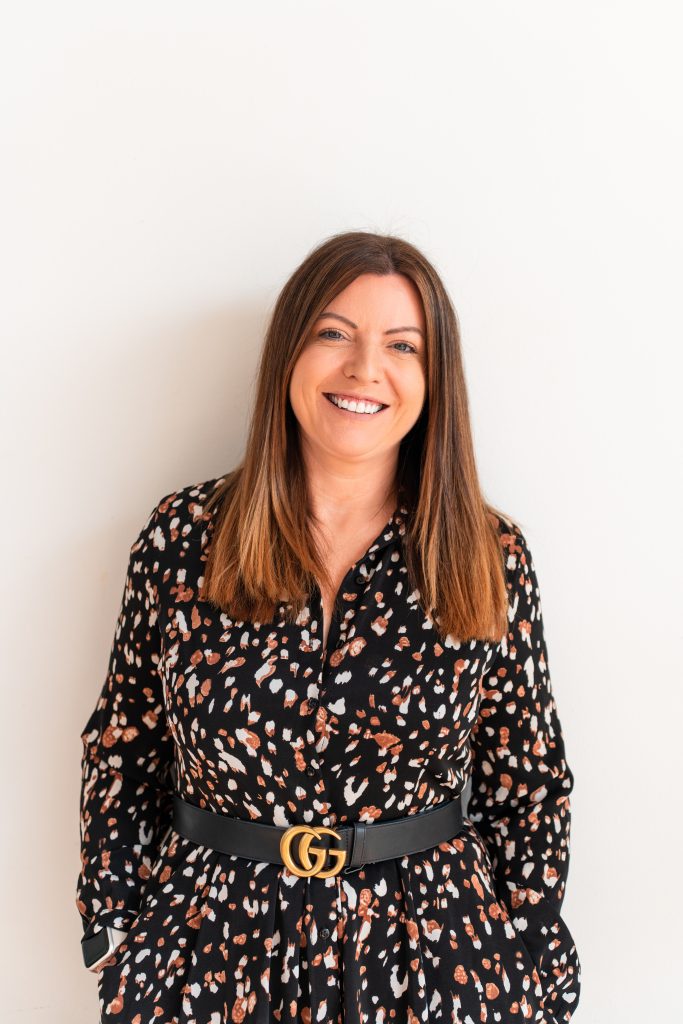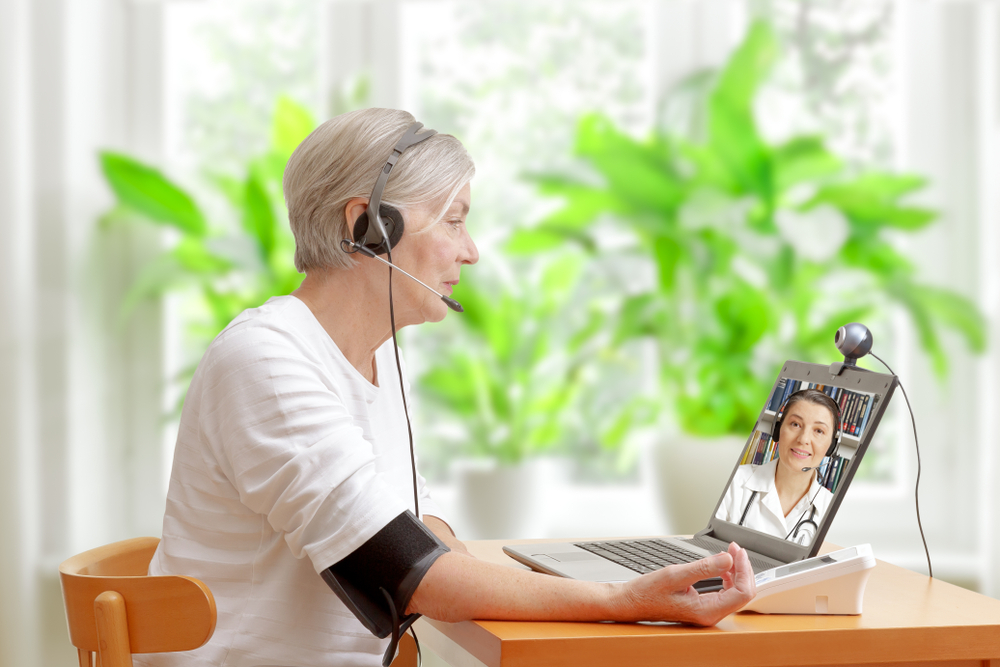In an era defined by unprecedented shifts in healthcare dynamics, the demand for personalized and accessible services has never been more pressing. We meet Kelly Short-McCullough, the Director of Home Healthcare at NeoHealth, to explore the evolving landscape of healthcare delivery at home. From demographic shifts to technological advancements, discover the driving forces behind the escalating need for care that extends beyond hospital walls.

Can you provide an overview of the home healthcare services offered by Neohealth?
We provide a range of specialised home healthcare services ranging from new-born care all the way to elderly support from DHA certified nurses, maternity care, as well as post-operative care, physiotherapy and Midwife and GP services, all in the comfort of our clients’ homes.

What sets your home health care division apart from others in the industry?
We have a combined 30 years of experience in Homecare management.
Our nurses are incredible! We only choose nurses who we would feel comfortable allowing to support our own family.
We are a fully accredited training centre.
We really care about our team. Nurses come to us after their negative experiences with other providers. We treat others as we would like to be treated!

Our business aims to be as sustainable as possible. We limit our use of paper by using tablets for medical care notes.
We provide a library of resources for our nurses based on the kinds of conditions that are most common.
When we look after children, we don’t just ensure safety, we also want to engage with the children by assessing the most appropriate developmental activities, diet management etc.
We are super flexible. When you need help, you don’t necessarily need 6 hours of help! We’re here when you need us to suit your timings!
Support through pregnancy including antenatal classes and a friend to ask for advice.
Post natal support including “check visits”. We know how overwhelming it can be being a new mum and we want to be the person that says “don’t worry! That’s normal”
Online booking – website and app. We want to make the process as easy as possible.

How do you ensure that patients receive personalized care tailored to their individual needs?
We provide well trained medical professionals who have experience in personalised care. When pairing a nurse with a patient, we introduce them and allow them some time to get to know each other. This allows the patient time to become accustomed to how their care provider works and also gives them a chance to explain what they need and expect from their health care provider throughout the process. This is also a chance for both parties to see if they are a good match personality wise.

What technology or innovative approaches do you utilize to enhance patient care and communication with caregivers?
Each nurse is provided with a tablet where they can easily and efficiently see information about each patient they are working with, laid out easily for them to read. The tablets not only look more professional and reduces the use and wastage of paper, but also ensures a seamless and efficient way of working for all our medical professionals.

How do you address cultural competence and diversity in the UAE while providing care to patients from various backgrounds?
Being professional and kind at all times is most important to us at NeoHealth, however we want this for our employees too. Our home healthcare professionals give everything to their job and are knowledgeable experts in their field and should be treated as such. We do our best to train our staff on the different values, morals and backgrounds of all people based in Dubai. With so many people from all over the world, it can sometimes be tricky to know each and every culture and how each family/individual like things to be done in their homes, but we do our best to prepare our staff for anything they may face so they know how to act and deal with each situation at hand in a professional and respectful manner.
Do you collaborate with healthcare providers, such as hospitals and primary care physicians, to coordinate patient care effectively?
Yes! We believe that including a multidisciplinary team is the most effective way to manage care and will always follow doctors’ instructions.
What measures do you take to ensure compliance with regulatory standards and maintain high-quality care delivery?
We are governed by the Dubai Health Authority and as such, we must ensure compliance at all times. DHA carry out regular inspections whereby our policies and procedures are checked, and our license will only be renewed if we are compliant. Our clinical manager is continuously reviewing updates and ensures that our nurses are fully up to date with any changes to policy or ensuring that any training updates/requirements are shared and understood. As an accredited training centre, we can easily ensure that our nurses are up to date and can easily achieve their required CME points.
How do you support and engage family caregivers in the care process, and what resources are available to them?
We want our team to work well with anyone involved in the care of a patient and will always encourage family caregivers to be as involved as they would like to be. Our nurses can also learn from them as they are the ones who have already had hands on experience with the patient.

Can you discuss any challenges or trends that you’ve observed in the home health care industry, and how your division is addressing them?
The home healthcare industry is facing several challenges including:
Workforce Shortages: Home healthcare agencies often struggle to recruit and retain qualified healthcare professionals, including nurses, home health aides, and therapists. This shortage is exacerbated by the increasing demand for home-based care services. We combat this by being an employer of choice and by ensuring that our nurses are treated well and always supported to be able to offer the best possible service to our clients.
Regulatory Compliance: Home healthcare providers must navigate complex regulatory requirements. Compliance with regulations related to licensure, certification and quality standards can be challenging and resource intensive.
Reimbursement Issues: Reimbursement rates for home healthcare services vary widely across payers. Low reimbursement rates and payment delays can strain the financial viability of home healthcare agencies and limit access to care for patients.
Technological Integration: Integrating technology into home healthcare delivery can improve efficiency, communication, and patient outcomes. However, implementing and maintaining technology solutions, such as electronic health records (EHRs) and telehealth platforms, can be costly and require staff training and support. We have invested heavily in technology – all our nurses have a tablet for updating electronic care plans and general reporting. We also created our own NeoHealth app and website enabling our customers to make bookings and keep track of their appointments and for telehealth appointments.
Care Coordination and Communication: Co-ordinating care across multiple providers, settings, and disciplines can be challenging in the home healthcare setting. Effective communication and collaboration among healthcare professionals, patients, families, and other stakeholders are essential to ensure continuity of care and patient safety.
What are the most common services requested?
The most common services requested are elderly care and childcare. Parents value the fact that their child will be looked after by a trained nurse. Who better to entrust the care of your children with? There are many untrained maids and nannies in this region and when things go wrong, which unfortunately they do, sometimes these ladies are just not equipped to deal with difficult situations – our nurses are, so not only will they be able to ensure your child’s safety, but we provide expert child training from both our clinical manager and midwife, which means that they will engage in age appropriate developmental activities.
With more Expats choosing to retire here, or working Expats bringing their parents here, there is an increase in the ageing population and the need for home healthcare more than ever. What are your comments on this? Is it affordable and easy to access for all?
After Covid, the demand for home health care grew rapidly, with more people needing to be isolated away from people, crowded areas, and hospitals. Being treated at home became the safer option. Now that Covid has passed, it seems that more people are opting for home healthcare wherever possible. There are many home healthcare providers available in the UAE now, providing plenty of choice for consumers, so the accessibility is there – it’s more that consumers need to know what to look out for when choosing the company. I think in most cases having home healthcare can be more affordable. Very often we can tailor our services according to the needs of our patients. Not all patients need 24-hour care, some only need help with certain chores around the house or at certain times of the day, around shower or dinner time so rather than spending all day in hospital paying far too much money than actually needed, people can opt for a cheaper option and use home healthcare exactly when and how they need to.

What advice would you give to families considering home health care for their loved ones?
I would say that this is the best decision for your loved ones. Allowing them to stay home while recovering only helps to speed up the process, as they are in an environment that they know and trust, they have one on one care, as opposed to sharing nurses with other patients in the hospital, and you get to build a better relationship with your caregiver while they are helping you which only improves the healing process.
What are the future trends of the home health care sector?
The home healthcare industry is experiencing notable trends as it continues to evolve to meet the needs of aging populations and individuals with chronic health conditions. Here are some of the key trends.
Aging Population: The aging population is driving increased demand for home healthcare services as older adults prefer to age in place and receive care in the comfort of their own homes. This trend is expected to continue as the population ages and life expectancy increases.
Telehealth and Remote Monitoring: Telehealth and remote monitoring technologies are transforming the delivery of home healthcare services by enabling virtual consultations, remote patient monitoring, and real-time communication between patients and providers. These technologies improve access to care, enhance convenience, and reduce healthcare costs.

Personalized Care Plans: Home healthcare providers are adopting personalized care approaches tailored to the unique needs, preferences, and goals of individual patients. Personalized care plans promote patient-centred care, improve outcomes, and enhance patient satisfaction.
Integration with Community Services: Home healthcare agencies are increasingly collaborating with community-based organizations, social services, and other healthcare providers to address the social determinants of health and support patients’ holistic needs. This integration promotes continuity of care, reduces healthcare disparities, and improves population health outcomes.
Overall, addressing the challenges and leveraging the trends in the home healthcare industry requires collaboration, innovation, and a patient-centred approach to care delivery. By adapting to evolving patient needs, regulatory requirements, and technological advancements, home healthcare providers can continue to enhance the quality, accessibility, and effectiveness of care provided in the home setting.
Visit https://neohealth.ae/ to know more.
